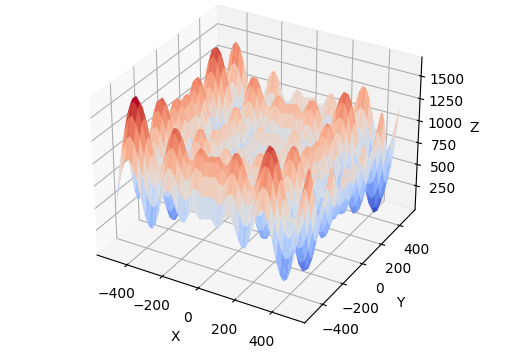Hybrid quantum-classical algorithms such as the Quantum Approximate Optimization Algorithm (QAOA) are considered as one of the most encouraging approaches for taking advantage of near-term quantum computers in practical applications. Such algorithms are usually implemented in a variational form, combining a classical optimization method with a quantum machine to find good solutions to an optimization problem. The solution quality of QAOA depends to a high degree on the parameters chosen by the classical optimizer at each iteration. However, the solution landscape of those parameters is highly multi-dimensional and contains many low-quality local optima. In this study we apply a Cross-Entropy method to shape this landscape, which allows the classical optimizer to find better parameter more easily and hence results in an improved performance. We empirically demonstrate that this approach can reach a significant better solution quality for the Knapsack Problem.
@inproceedings{ rochICRC2020,
author = "Christoph Roch and Alexander Impertro and Thomy Phan and Thomas Gabor and Sebastian Feld and Claudia Linnhoff-Popien",
title = "Cross Entropy Hyperparameter Optimization for Constrained Problem Hamiltonians Applied to QAOA",
year = "2020",
abstract = "Hybrid quantum-classical algorithms such as the Quantum Approximate Optimization Algorithm (QAOA) are considered as one of the most encouraging approaches for taking advantage of near-term quantum computers in practical applications. Such algorithms are usually implemented in a variational form, combining a classical optimization method with a quantum machine to find good solutions to an optimization problem. The solution quality of QAOA depends to a high degree on the parameters chosen by the classical optimizer at each iteration. However, the solution landscape of those parameters is highly multi-dimensional and contains many low-quality local optima. In this study we apply a Cross-Entropy method to shape this landscape, which allows the classical optimizer to find better parameter more easily and hence results in an improved performance. We empirically demonstrate that this approach can reach a significant better solution quality for the Knapsack Problem.",
url = "https://ieeexplore.ieee.org/document/9325349",
eprint = "https://arxiv.org/pdf/2003.05292.pdf",
publisher = "IEEE",
booktitle = "International Conference on Rebooting Computing",
pages = "50--57",
doi = "https://doi.org/10.1109/ICRC2020.2020.00009"
}
Related Articles
Relevant Research Areas

